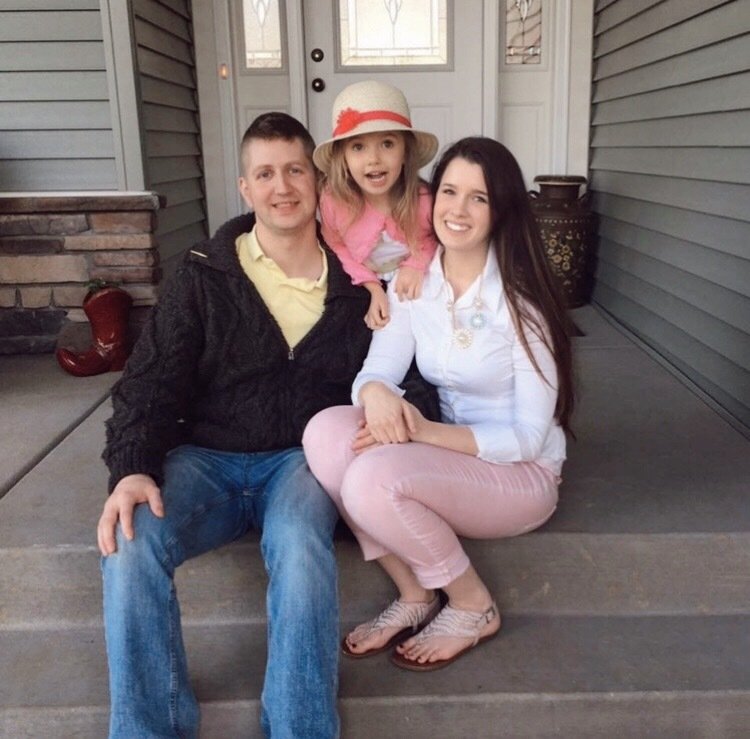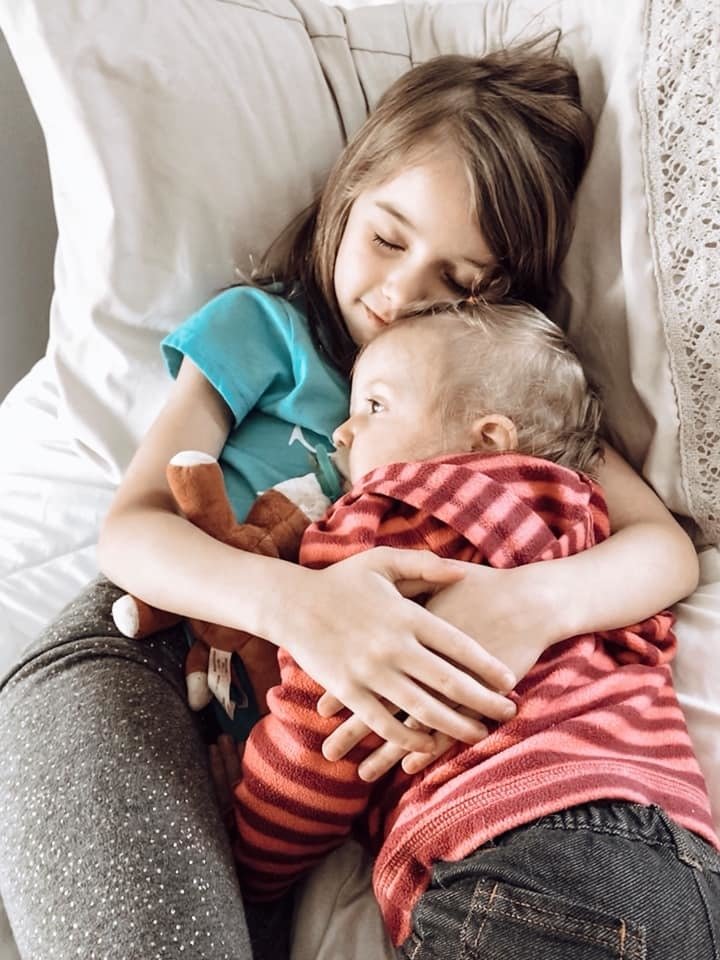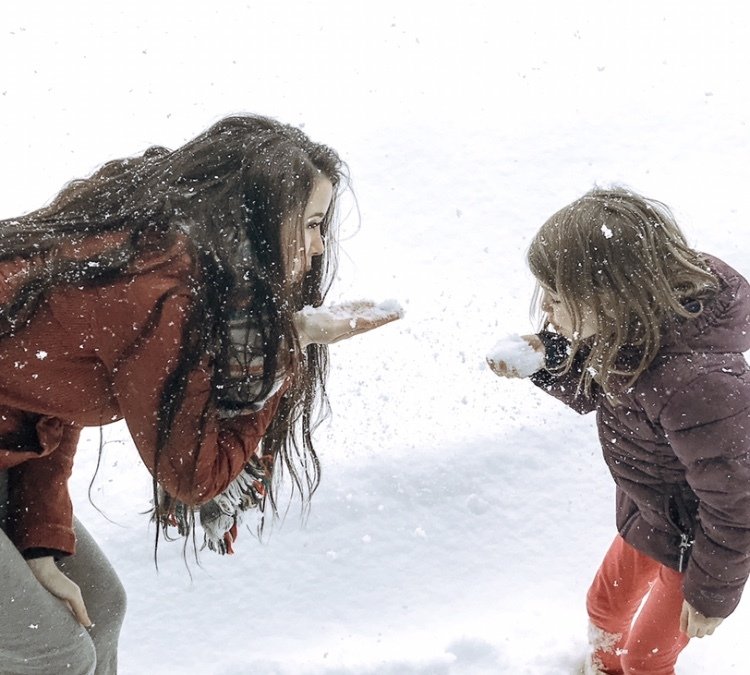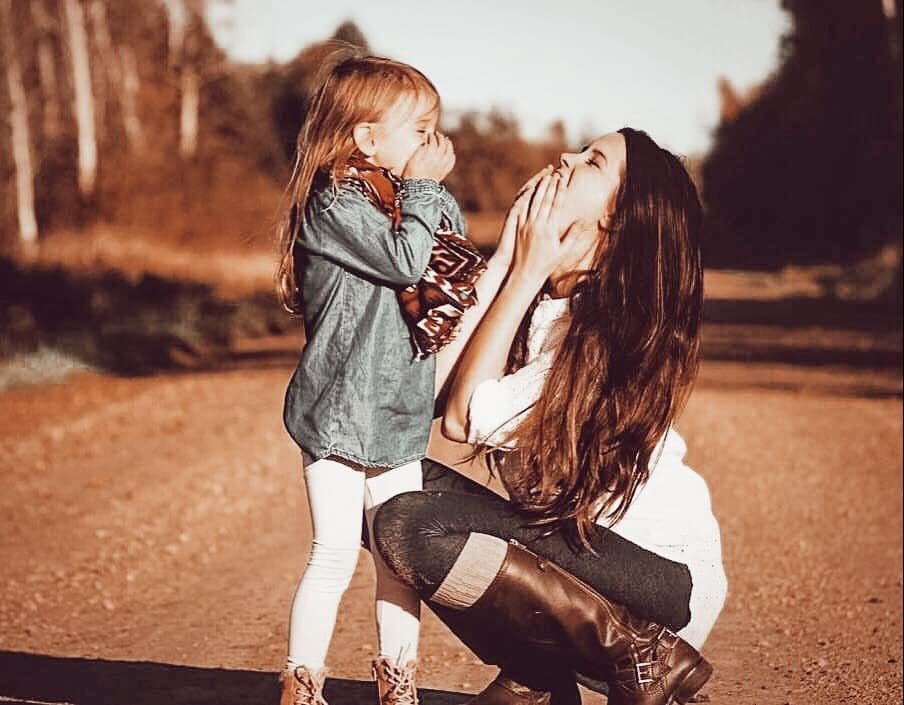At this point, time-outs are pretty much par for the course in parenting. I mean, who hasn't sat their child in a corner to "think about what they've done" after they've hurled a block through the air or had a truly epic meltdown? But a new Facebook post by parenting blogger Laura Muhl is challenging parents to re-think the way we discipline — and it's sparking some major debate.
Muhl begins with a quote about the possible connections between the way we discipline our kids as toddlers, and how our teens behave later.

"Perhaps the reason teens isolate themselves when they're overwhelmed instead of coming to us with their problems is because when they're toddlers we isolate them when they're overwhelmed instead of helping them with their problems."
Those were the words of L.R. Knost, from her book The Gentle Parent. Muhl tells CafeMom that she first read them, they sparked something inside her. Something that caused her to log onto Facebook, and spread them far and wide.
"When our kids are small and trying to manage emotions, they can't express what they are feeling," Muhl writes in her post. "They throw tantrums, they throw things, they have meltdowns, they scream and they whine. This is their way of communicating with us."
Instead of being banished to a corner, Muhl argues, "They need help to organize, process and express their feelings in a healthy way."
And yet, "society tells us we should punish them for this," she continues. "Send them to their room, put them in timeout, spank them."
Muhl writes that by teaching them to suppress their emotions — telling them not to whine or complain, and to just keep quiet — we're essentially training them not to express themselves. And that reinforcement, of dealing with things alone, can have some compounding effects later, she believes.
Fast-forward to those teenage years, and Muhl says we wonder why our kids don't always feel safe talking to us.
"We expect them to know that NOW it's okay," she writes. "[But] they are subconsciously wired to think the opposite because this is what they grew up learning."
So what can we do about it?
"Give your child permission to feel," she urges. "Let them know their feelings are valid and that you care, no matter how small. Make sure they know that they are heard. Pretty soon meltdowns over crayons will turn into breakups, heartbreak, sex, or even depression. You want your child to know that you will always hear them, no matter how small. You are their safe space."
Muhl says she connected with the quote so deeply, because she grew up in a home where "punishment was always the first answer."

"We didn’t talk about feelings or emotions," she tells CafeMom. "This affected me much in early adulthood as I struggled with relationships, anxiety, and depression and never felt like I could reach out to anyone. Because of this lack of emotional build-up in my life, I have always known that my child’s emotional development would be a top priority in our household."
It wasn't long before the people of Facebook weighed in -- in fact, the post has gone pretty viral, with more than 25K shares and counting.
It's also racked up more than 4,000 comments from users who both wholeheartedly agreed and wholeheartedly disagreed.
"I love this," wrote one user, while another added that a "steady and balanced" approach like this is the way to go.
Others were all NOPE, NOPE. NOPITY NOPE.
"Completely wrong!" wrote one mom. "The problem with kids today is that they have no discipline and they feel isolated because of phones and social media. They have no idea how to properly socialize thus making them isolated!"
"Time-outs are good," added another. "Let them think about it then talk to them after. This is silly."
At the same time, plenty of others argued that maybe the key to disciplining with compassion lies somewhere in between.

"There's a thing called 'time in,'" noted one user. "You remove the child from the situation and sit with them. They sit quietly while you read or something that you can do next to them (maybe you can even fold laundry or do the dishes) until they are ready to discuss what was going on. Then you role play how they should handle the situation."
This way, the user continues, you aren't actually sending them away or even isolating them; you're focusing on letting them calm down while also realizing they should have handled things differently.
She also points out that there's a difference between a 2-year-old tantrum and a 4-year-old one. The toddler probably won't understand why they're being put into a time-out, but they would be able to take other cues.
"I brought my 2-year-old into his room, sat him on his bed, and said 'let's take a time out and calm down,'" the user explained. "And then we would read a book. Anytime he started to get upset, he asked me for a 'time out' so I could help him calm down. There's the difference."
(Can you imagine? A kid who asks for a time-out!)
In fact, a recent study found that time-outs are still an effective form of discipline -- and they're not harmful, if approached in the right way.
The study, conducted by the Child Behaviour Research Clinic at University of Sydney in Australia, even found that kids are happier when given time-outs.
"In 30 years, we’ve treated thousands of kids with disruptive behavior," said Professor Mark Dadds, of the Child Behaviour Research Clinic based at the University’s Brain and Mind Centre. "When we use time-out as part of a positive parenting program, kids are much happier and much more regulated."
Other smaller studies have more or less proven the same thing, including one in 2016 that found that time-outs are far more effective than physical discipline — and (big surprise) don't have the same damaging long-term effects.
Speaking with CafeMom, Muhl makes it clear that she agrees discipline is necessary, and says her words were misinterpreted.

"A lot of people misunderstood my words and interpreted it as me saying to never discipline your child," she says. "This is totally not the case. As an adult, when something stressful happens, I don’t want to be sent off to cry it out. Being left to cry it out is being told that they shouldn’t have those feelings in the first place."
Above all, Muhl says the purpose of her post was merely a reminder to parents that children are emotional beings who are fragile.
"Everything we do shapes their emotional brain for the rest of their lives," she adds. "Being mindful of our own actions and the effects we have on our child is so important … [as is] making sure that your child knows that they are loved and heard and capable of making better choices going forward."
Wherever you stand on the issue of time-outs, you have to admit that Muhl has a point about how we talk to our kids when it comes to their feelings.
Yes, kids are often wild and unruly and emotional basket-cases in those early years. But that's also because there's a lot of growing and developing going on in that mind and body of theirs. They're learning to process the world around them, the scary changes of things like going to school, and are coming to terms with how to express what it is they're truly feeling in there.
It's our job to remain calm (as best we can) and encourage them to verbalize those feelings, even in the middle of a tantrum that might be totally driving us nuts and/or embarrassing the heck out of us. The method we choose will be slightly different for all of us, but as the research clearly suggests, we should always aim to strike a balance of being warm, but firm.
"That means a lot of affection and positive feedback for kids, but also consistent consequences when they act inappropriately," ChildMind.org explains. "Time-outs help you communicate that behavior is unacceptable without blowing your top."
(Wouldn't that be nice.)




